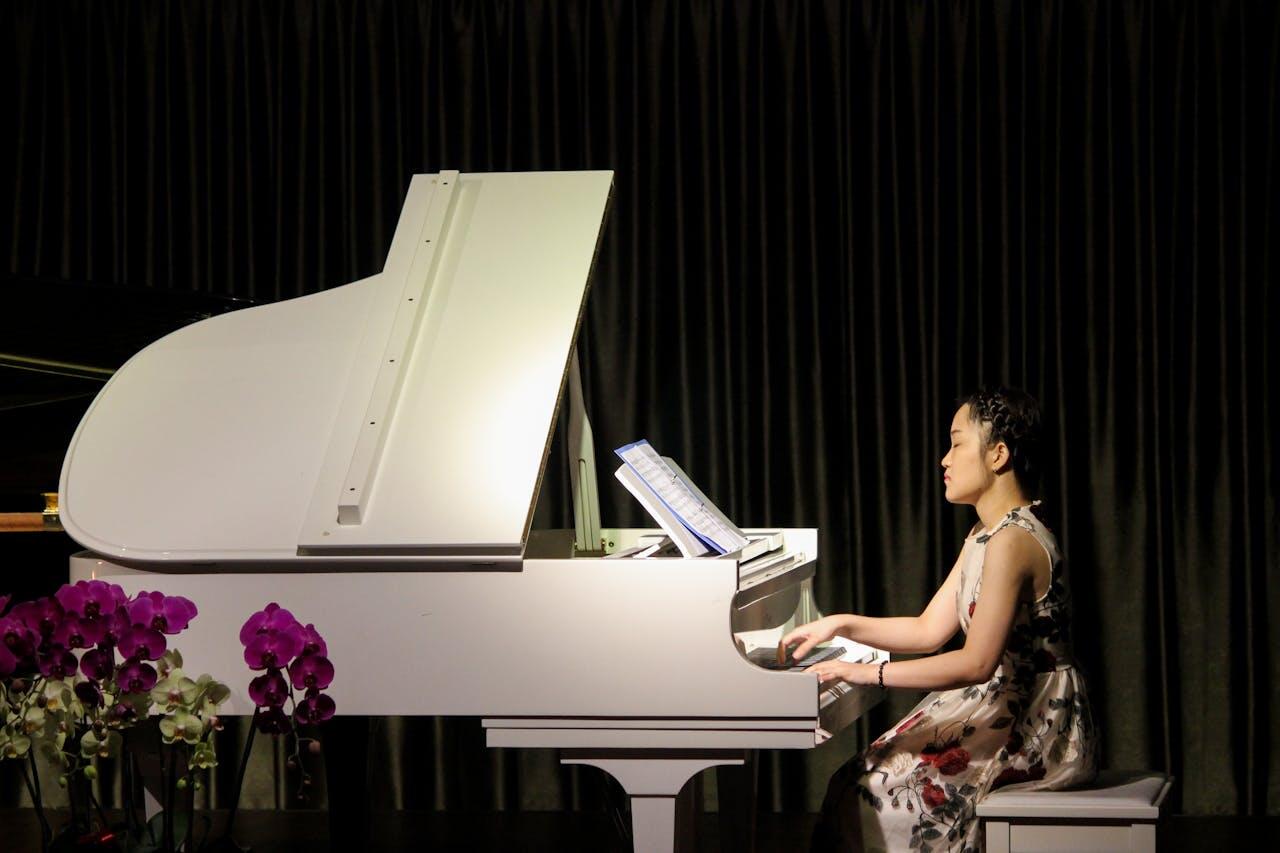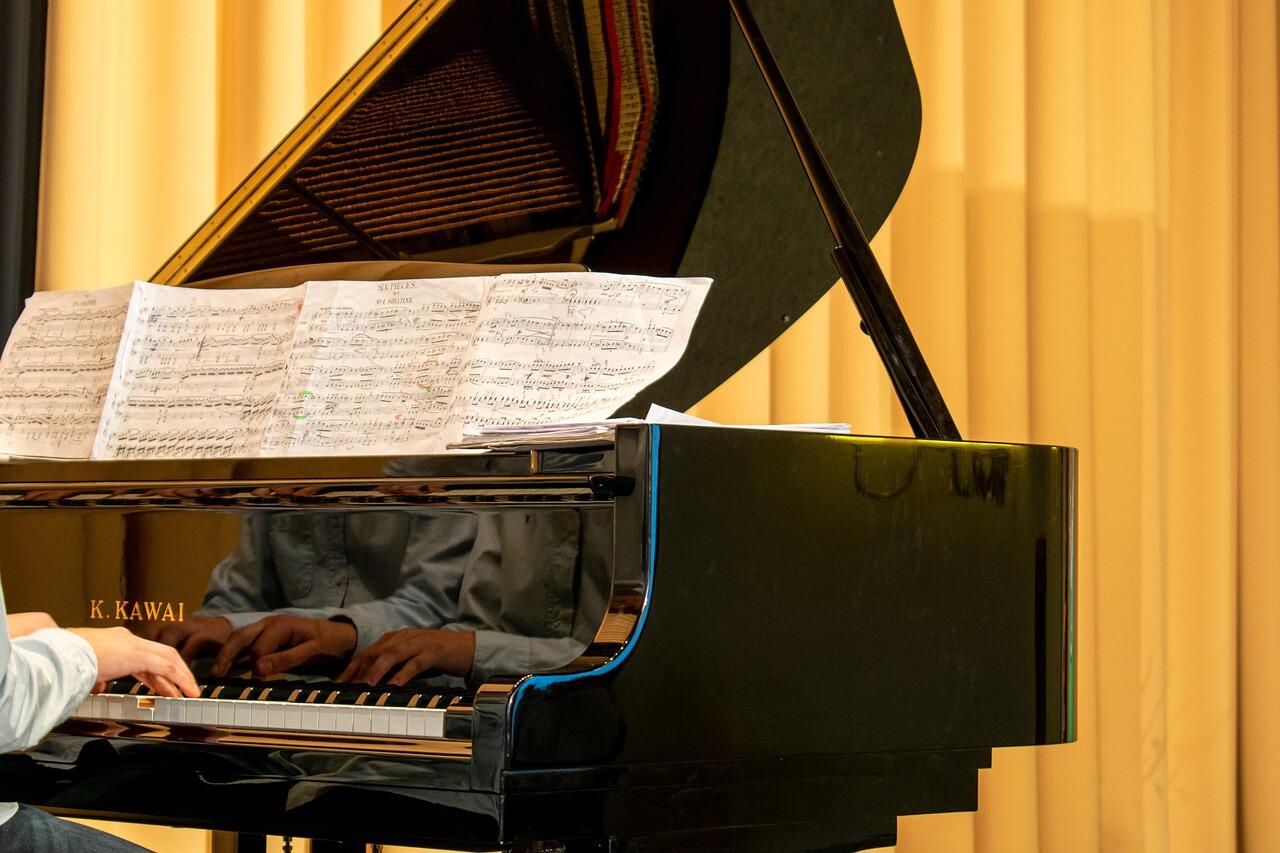Many professional pianists dream of becoming aspiring musicians. This path to success can be difficult, long, and demanding. Hands down, one of the most prestigious ways to achieve this is to attend a conservatoire.
If you are new to piano, or any instrument for that matter, a conservatoire is a word that you might not be familiar with. Conservatories are institutions that are dedicated to the study of music. These places not only offer specialised training but also prepare musicians for a career in music.
When it comes to being a pianist, a conservatoire gives you the unique opportunity to refine your skills while making professional networks.
As you might already be aware, becoming a professional pianist is not easy. You not only need to be dedicated and hardworking but must have passion and love for the craft. In this article, we will look at the steps to becoming a professional pianist at a conservatoire.

The Role of a Conservatoire in Piano Training
A conservatoire is a place where musicians can refine their skills. They not only provide rigorous but also specialised education in their art. When it comes to pianists, attending a conservatoire is something to consider. It not only develops you as an artist but it also helps you hone technical proficiency in this instrument. A conservatoire also features world-class facilities, including practice rooms, concert halls, and libraries. You will also find that performers and composers will be part of the faculty in a conservatoire.
It comes as no surprise that training at a conservatoire is not only demanding but also requires a lot of hard work and focus from the pianist. In order for you to be successful in a conservatoire, you must not only be a well-rounded musician but also technically skilled.
In order to prepare you, a large part of your experience in a conservatoire will be spent in recitals, masterclasses as well as performances. This is to ensure that you develop a proper stage presence as well as professionalism. They offer opportunities to engage and collaborate with composers as well as other fellow musicians. This will give you the opportunity to broaden your musical perspective which will serve you well in your professional career as a musician.
Discover How to Learn Piano Without a Professional Teacher
Preparing for Admission: Requirements and Auditions
A conservatoire is a class of its own. Therefore, it should not surprise you that not everyone will be able to attend a conservatoire. There is a rigorous admission process that every musician will need to go through in order to join. Most but not all conservatoires will require applicants to have a solid foundation in classical piano.
You must also have a good and strong understanding of music theory as well as its history. Although some places accept students with a basic level of proficiency in playing the piano, they require the applicant to demonstrate a high level of technical ability and musical expression.
Not everyone can attend an audition to join a conservatoire, preparation for the audition involves years of hard work and practice. During this time, the pianist will work on their repertoire as well as musicality and technique. In order to showcase the best technical skill and emotional depth, the pianist must choose the best piece of music to play.
On top of this, a lot of conservatoires require their applicants to submit a portfolio of their best performances as well as academic achievements.
As for the audition, it typically consists of the pianist performing one or more pieces of music which is followed by an interview and/or a theory test.
Click here if you are considering joining a music school to learn piano.
The Curriculum: Core Subjects for Pianists
You might think getting through the audition and accepted into the conservatoire is the biggest battle but this couldn't be the furthest thing from the truth. In fact, this is exactly where the battle and hard work starts.
There is a demanding curriculum designed to enhance and nurture all aspects of a pianist's musical abilities. Let us look at some of the key areas you will be looking at in a conservatoire.
Technical Training
When it comes to a pianist, technical training is undoubtedly the heart of their education. You will need to spend hours practising daily to not only develop your dexterity, strength and precision. A pianist will need to master scales, arpeggios and other technical exercises to build their skills which are essential especially when it comes to performing complex works. As a student, you will be required to study the different styles as well as techniques in piano.
Repertoire and Performance
In order to be successful in a conservatoire, you will be expected to not only learn but master and perform a wide variety of repertoire. This ranges from Baroque all the way to contemporary music. Students will usually study works by famous composers. Some examples are Beethoven, Chopin, Bach and Liszt. You will have the opportunity to play and perform in your class as well as in public recitals.

Music Theory and Ear Training
When it comes to music, and not only the piano, you must have a solid understanding of music theory. As a student in a conservatoire, you will learn and master topics such as harmony, counterpoint, form and many more. This will give you an understanding of how music is constructed which is essential for your professional life as a pianist. You will also undergo ear training which is extremely important for a pianist. You will be able to recognise intervals, chords and rhythms which in turn will develop your ability to listen critically and interpret music more effectively.
History and Analysis
In order for you to be a successful pianist, you will need to acquire knowledge of the history of music. This is important for understanding the context of the repertoire you perform. Students will learn the evolution of classical music as well as the key composers and the historical significance each of the different musical movements has in music history. Learning all of this will allow you as a pianist to understand the deeper sense of meaning to each of the pieces you play.
Collaboration With Chamber Music
The piano is a solo musical instrument but in a professional setting, a pianist often works with other musicians. When a pianist attends a conservatoire, they are encouraged to collaborate with other students and fellow musicians in chamber group music, duets or even in an orchestral setting. This enhances their ability to listen and communicate with each other which will prepare them for the collaborative nature of professional music-making.
Are you looking for the best places to learn the piano? Click here to learn more!
Overcoming Challenges: Time Management and Mental Health
Training to become a professional musician, especially a pianist, is demanding both physically and mentally at a conservatoire. You will undergo a lot of challenges which are not limited to long hours of practice as well as coursework, performances and auditions. Saying that this can be overwhelming to pianists is an understatement. This is why it is pivotal for students to be able to maintain the perfect balance between practice and other responsibilities. This is a challenge that most students face when they join a conservatoire.
In order to cope, students will need to have impeccable time management skills. They will need to have the skills to organise their practice schedules efficiently in order to meet the expectations of their curriculum. This is important because pianists in a conservatoire will need to practice for multiple hours each day. This involves working on different pieces simultaneously which can be extremely difficult. In addition to all these factors, a successful student must also allocate sufficient time for their theoretical studies, lessons, and rehearsals with other musicians.
Therefore, it comes as no surprise that all of this can contribute to intense pressure for students and in turn this can affect their mental health. A life in a competitive environment with high expectations can lead to stress, anxiety and even burnout. In order for you to pursue the piano as a professional player, will require you to develop good and useful coping skills that will help you. It is also important to have a support system that consists of mentors as well as family and professional counsellors. If you want to learn piano in an association, click here for more information.
A lot of conservatoires know the demand that their students go through mentally as well as physically which is why they usually offer resources to their students in the form of counselling services as well as workshops that are dedicated specially to mental well-being. Peer support groups are available to help students face challenges.

If you’re eager to dive into the world of piano playing, hiring a tutor could be one of the best choices you make on your musical journey. At Superprof we have many piano tutors that you can choose from. Our tutors are not only highly skilled but also verified and knowledgeable. It does not matter which state you come from, we are sure to have a tutor for you.
It is fairly easy for you to look for a tutor on our platform. All you will need to do is key in your instrument of choice and your location and you will be provided with a list of tutors who are just eager to help you in your journey to learn this instrument.
Summarise with AI:















